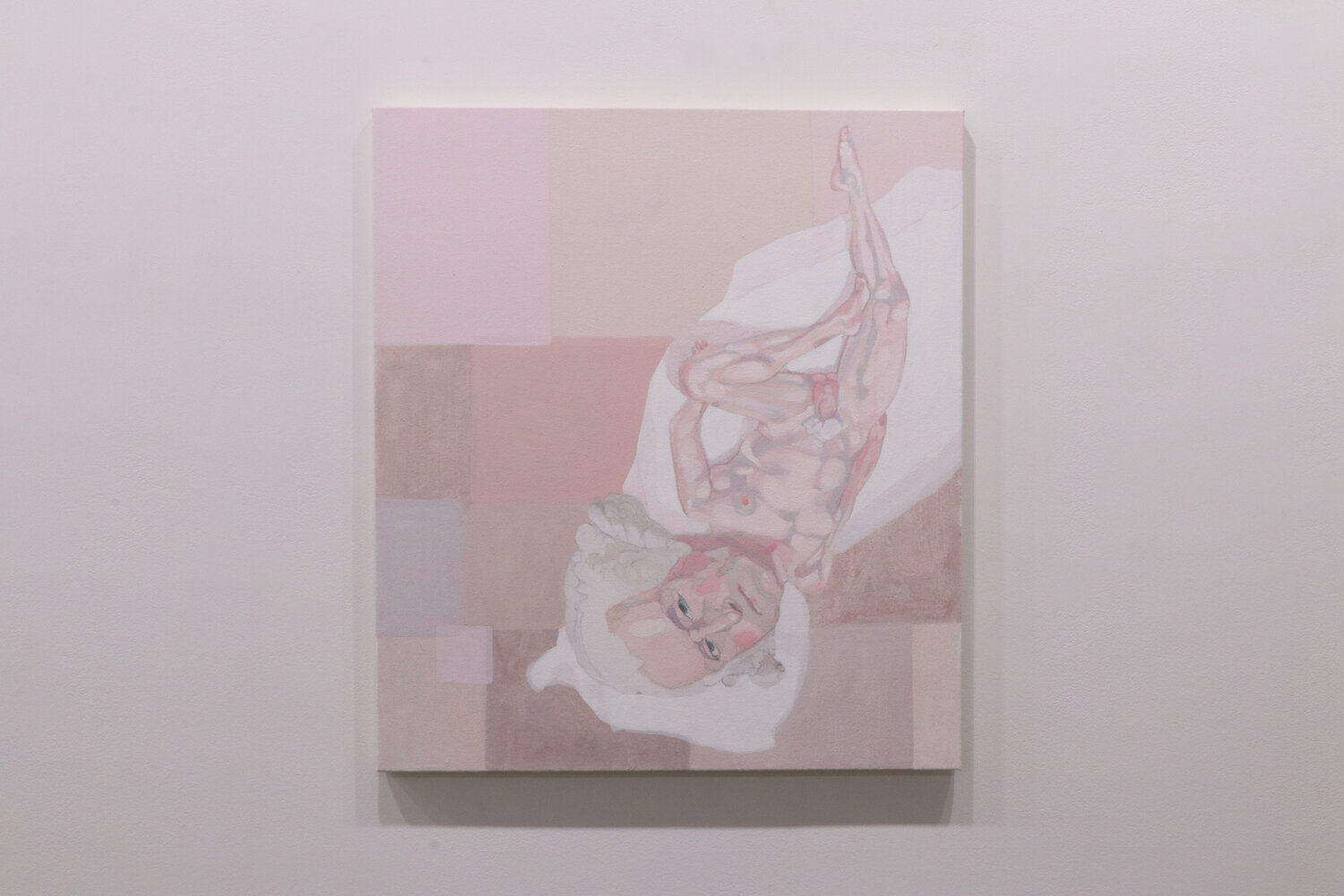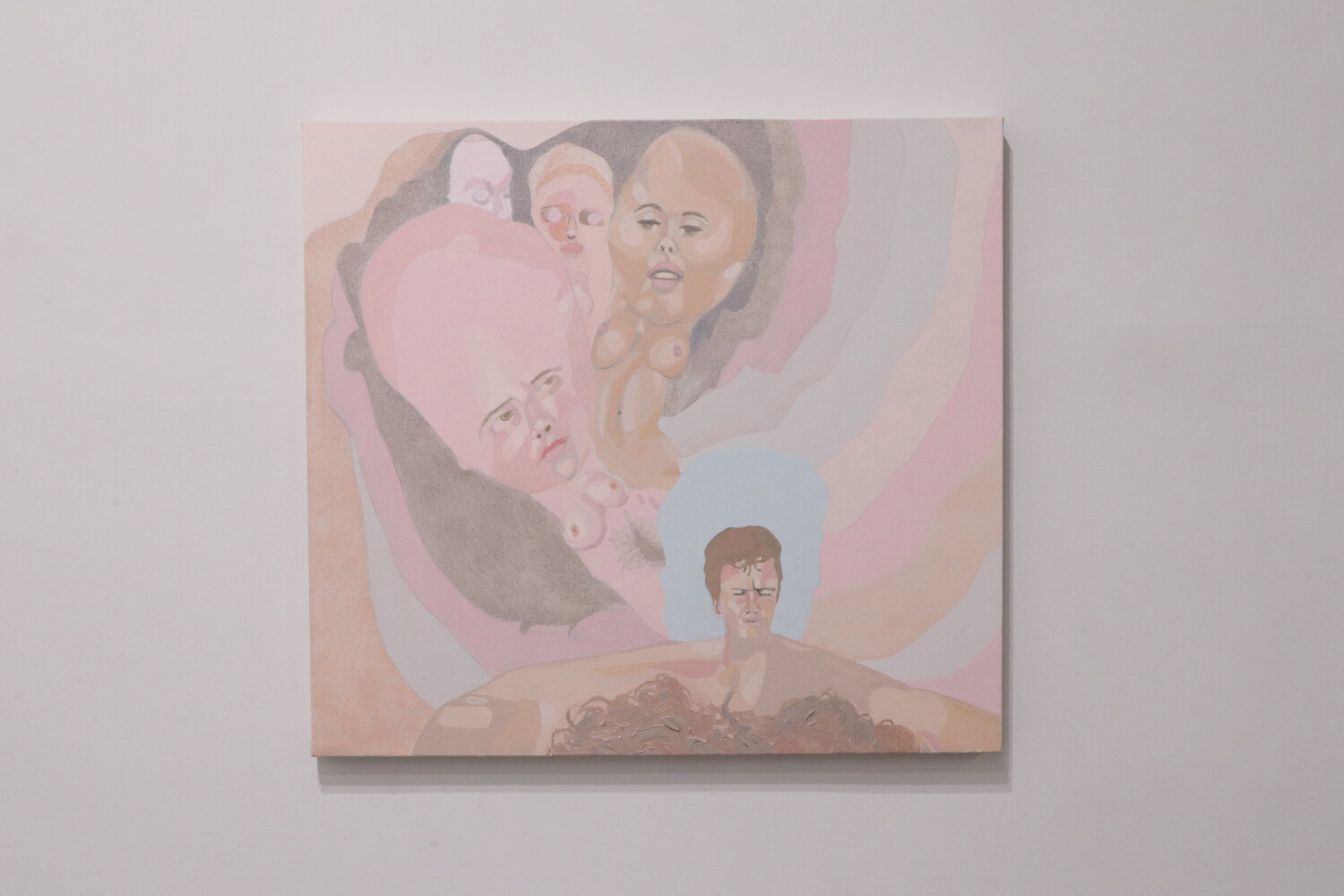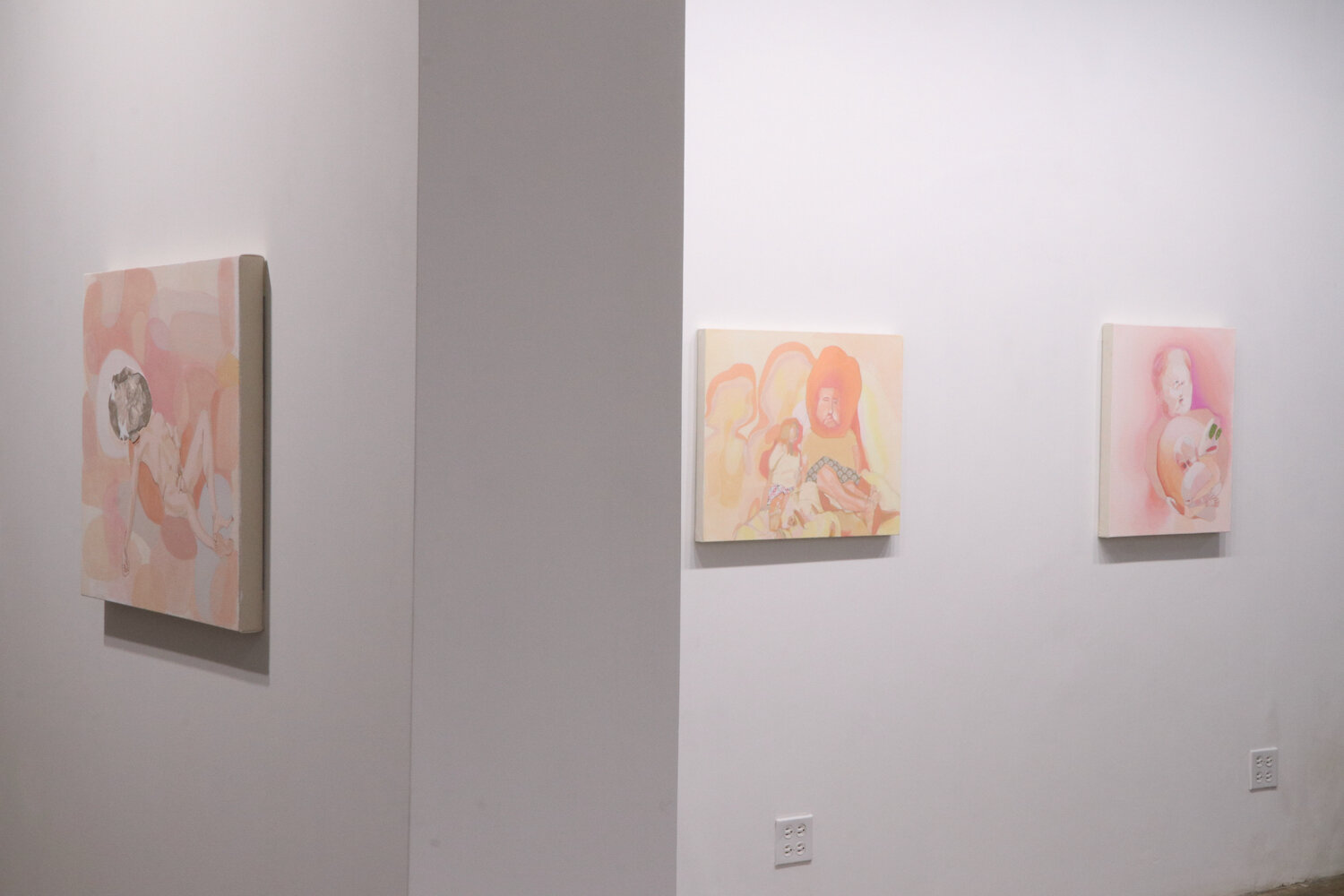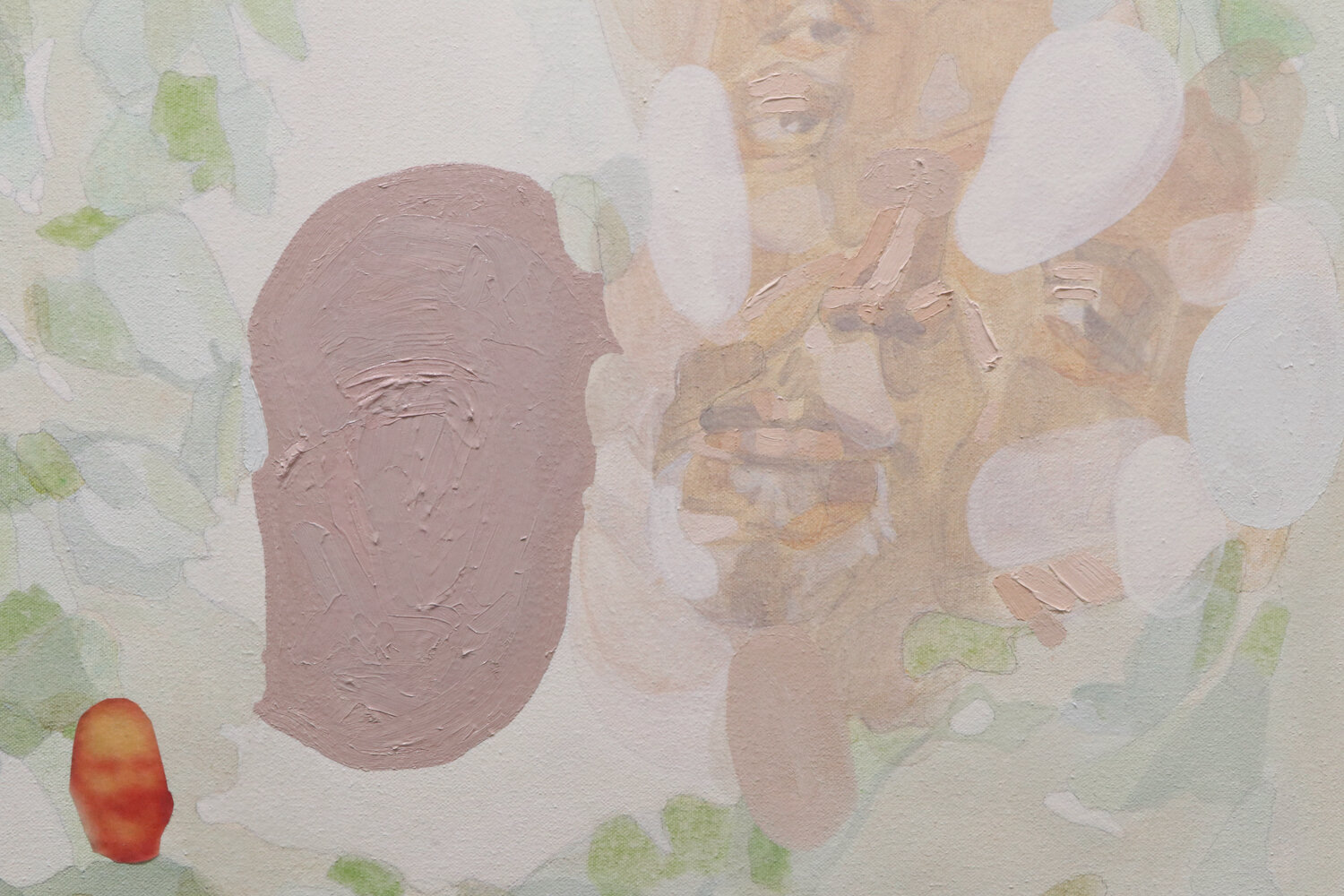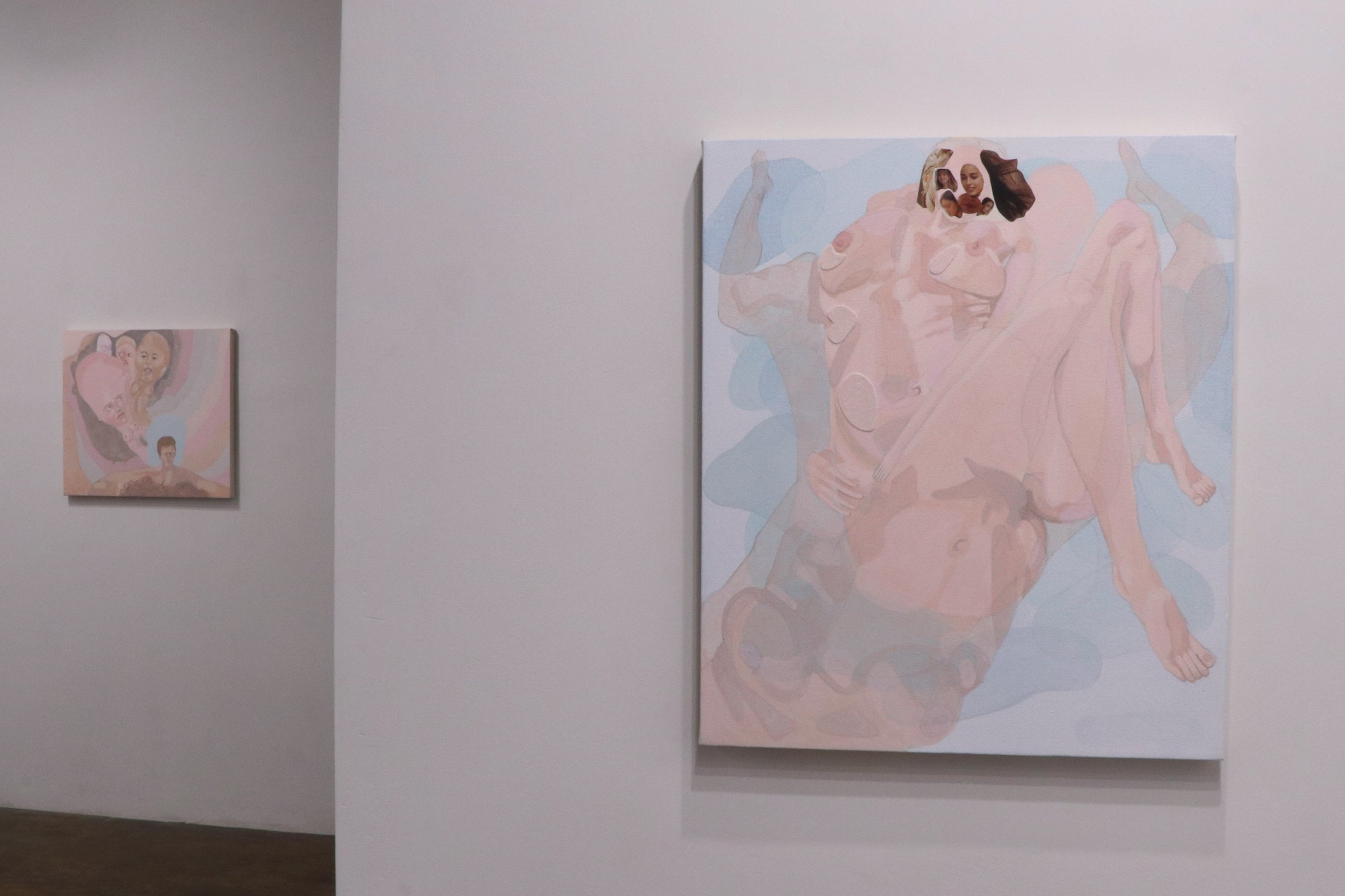If You’re Not a Little Dirty At the End of the Day You’re Not a Man
If You’re Not a Little Dirty At the End of the Day You’re Not a Man
Andreas Fischer
November 16, 2019-January 11, 2020
It would be easy to say this exhibition began with Andreas Fischer exploring his desire. But his paintings are only kind of about desire. They are also about guilt for having desire. And what we project onto someone when we see they have their own independent desire, when we would rather not carry that awareness (like the oogie response of a middle schooler witnessing their schlubby middle-aged history teacher flirting).
“Desire” as in he gets turned on seeing a woman with nice curves wearing not so very many clothes. Exposed skin. Not “desire” as in the longing for a really good glass of wine, or wishing to be engulfed by sunshine in a garden while reading literature, or wanting to belong to a community. We use “desire” in the academic sense to subtly, politely refer to lust. “Desire” as a shutting down of all the things we can passionately long for, in favor of the lust of a desirable body. His paintings are not concisely about desire, but about all the hemming and hawing we go through before we just own up to wanting what we are not supposed to. The paint works that way too. Sometimes a wet sheen, a glaze, a thin bit of color that works like atmospheric perspective because the shapes are soft and thin, and the edges blend. The relationship to that soft edged is somehow distant.
These paintings are also about power.
Desirable flesh is a different soft than a gentle focus. Thin paint with a subtle sheen can produce slick flesh. Perhaps Andreas imagines what happens when he moves his lusty gawking eyes over a woman’s body. Is he taking advantage?
When Andreas started asking power questions, he dove into many different kinds of relationships, and the subjects shifted some of the approaches to the material too. There are parental attachments, mentors to reevaluate, folks who remain strangers but serve as ideological inspiration, and navigation of friendships that span racial divides. There are elements of the paintings that are heavy and layered and re-worked and covered and scraped back. Those moments are a kind of battle to get to at the way power works in our lives. The fight over who gets to look, who gets to say, who is believed, who earns, who labors. These questions are settled at a different register than when we explicitly talk about power. But that unspoken register remains the very structure of power. There is much dithering about what elements of authority to address, similar to the selection of exposed flesh and elements that oppose lust. The paintings don't give us access to power. Andreas does not pontificate about power redistribution. He doesn’t offer egalitarian solutions. He opens up ways to look at desire, societal connection and how those things relate to authority. Vulnerable looking is not better than the fulfillment of our lustful desires, nor better than egalitarian access to power across the board. But the unknowing way Andreas approaches exploring these topics is immensely better than the mountains of work that somehow declare that they are about power and desire. He is fearlessly exploring masculine desire in a time when that inquiry must also answer to constructs of toxic masculinity and the proliferation of rape culture. He is looking at access to power when he (and all who look like, or identified similarly) are asked to own up as the problem. Andreas is aware of his own complex relationships to privilege, to presumptions that he has more than his share. In his paintings we get glimpses of other possibilities, of complexities that resonate, but mostly remain unseen and unspoken. And he does all this with a deft hand that produces images more painting than diatribe, more color than back and white, more color than color names on spectrums. The narrative content of these paintings brings nuanced humor, vulnerability, champion earnest truth seeking, and value gobsmacked wonder.





